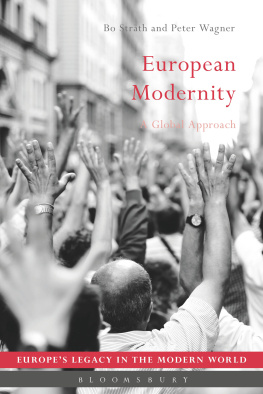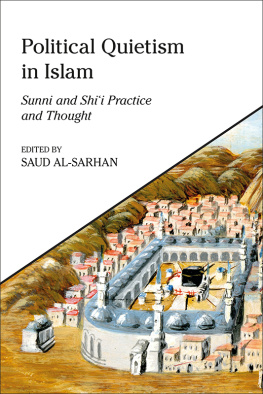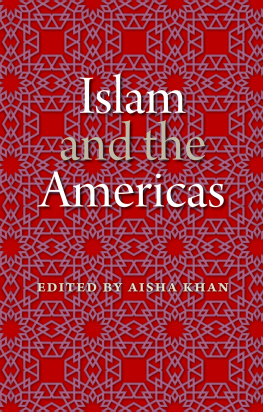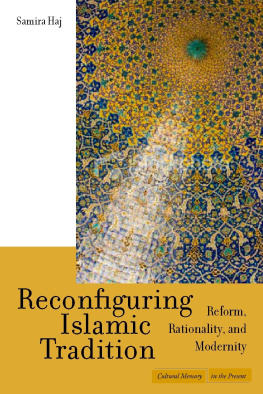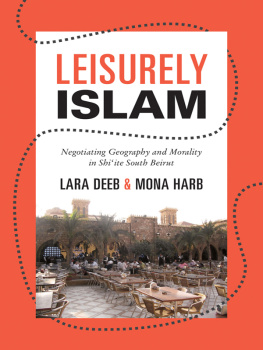An Enchanted Modern
PRINCETON STUDIES IN MUSLIM POLITICS
DALE F. EICKELMAN AND AUGUSTUS RICHARD NORTON, EDITORS
Diane Singerman, Avenues of Participation: Family, Politics, and Networks in Urban Quarters of Cairo
Tone Bringa, Being Muslim the Bosnian Way: Identity and Community in a Central Bosnian Village
Dale F. Eickelman and James Piscatori, Muslim Politics
Bruce B. Lawrence, Shattering the Myth: Islam beyond Violence
Ziba Mir-Hosseini, Islam and Gender: The Religious Debate in Contemporary Iran
Robert W. Hefner, Civil Islam: Muslims and Democratization in Indonesia
Muhammad Qasim Zaman, The Ulama in Contemporary Islam: Custodians of Change
Michael G. Peletz, Islamic Modern: Religious Courts and Cultural Politics in Malaysia
Oskar Verkaaik, Migrants and Militants: Fun, Islam, and Urban Violence in Pakistan
Laetitia Bucaille, Growing up Palestinian: Israeli Occupation and the Intifada Generation
Robert W. Hefner, editor, Remaking Muslim Politics: Pluralism, Contestation, Democratization
Lara Deeb, An Enchanted Modern: Gender and Public Piety in Shii Lebanon
An Enchanted Modern
GENDER AND PUBLIC PIETY
IN SHI`I LEBANON
Lara Deeb

Copyright 2006 by Princeton University Press
Published by Princeton University Press, 41 William Street, Princeton, New Jersey 08540
In the United Kingdom: Princeton University Press, 3 Market Place, Woodstock, Oxfordshire OX20 1SY
All Rights Reserved
LIBRARY OF CONGRESS CATALOGING-IN-PUBLICATION DATA
Deeb, Lara, 1974
An enchanted modern : gender and public piety in Shii Lebanon / Lara Deeb.
p. cm.(Princeton studies in Muslim politics)
Includes bibliographical references and index.
ISBN 0-691-12420-5 (alk. paper)ISBN 0-691-12421-3 (pbk. : alk. paper)
1. ShiitesLebanonBeirut. 2. Islam and politicsLebanonBeirut. 3. Women in IslamLebanonBeirut. I. Title. II. Series.
BP192.7.L4D44 2006
305.48'69782'0956925dc22 2005048753
British Library Cataloging-in-Publication Data is available
This book has been composed in Sabon
Printed on acid-free paper.
pup.princeton.edu
Printed in the United States of America
10 9 8 7 6 5 4 3 2 1
Contents
Acknowledgments
THIS BOOK is the culmination of a voyage that forms only part of my lifelong relationship with Lebanon. I am greatly indebted in myriad ways to the many people who have helped and supported me along the way, and grateful for the various forms of institutional support from which this project has benefited.
The field research for this project was made possible by a Social Science Research Council International Dissertation Research Fellowship, a National Science Foundation Dissertation Fellowship, a grant from Emory Universitys Internationalization Fund, and a P.E.O. International Scholar Award. The Center for Behavioral Research at the American University of Beirut (AUB), under Samir Khalaf, provided an academic home in Beirut. This version of the manuscript was written during a year at the Harvard Academy for International and Area Studies.
Many organizations in the southern suburbs of Beirut kindly facilitated my research, including al-Mabarrat Charitable Association, the Martyrs Association, the Islamic Charitable Emdad Committee, the Imam al-Sadr Foundation, the Consulting Center for Studies and Documentation, and the media relations office of Hizbullah. I owe an especial debt of gratitude to the Social Advancement Association for including me in their activities and embracing me as a volunteer with them.
My field research experience was greatly enhanced by conversations with Mona Harb, Diane Riskedahl, Rola Husseini, Randa Serhan, and many colleagues at AUB; Dianes always good-humored comradeship in fieldwork; e-mail discussions with fellow fieldworking Emory students Daniel Lende and Donna Murdock; Hussein Nabulsis consistent willingness to answer yet another question; and Hajjeh Umm Muhammads warm hospitality and delicious malfouf. Lebanon would have been a much colder place without my extended family, who provided refuge, entertainment, and company whenever I needed a break. My family and friends outside the southern suburbs supported me in my research endeavors even as they doubted my sanity, and often provided unwitting fodder for thought and contrast.
I am most grateful to the teachers I have been privileged to work with, and who have shaped and supported this project from its inception. Donald Donham read draft upon draft, in various forms over the past several years. His astute guidance, inspiring scholarship, provocative questions, and unfailing encouragement pushed my thinking throughout this project, and continue to do so today. Corinne Kratz patiently read and provided insightful feedback on far too many drafts and stream-of-consciousness e-mails from the field. Bruce Knaufts reflections reminded me to keep broader contexts in mind. Suad Joseph and Debra Spitulnik provided incisive interventions for several chapters. My teachers and friends Kristen Brustad and Mahmoud al-Batal were a constant source of support, quelling my language anxieties and providing a home in Atlanta on several occasions.
Colleagues and friends in various academic locales have provided helpful comments and thoughts on pieces of this book or its arguments in one form or another. I especially thank Tom Boellstorff, Houchang Chehabi, Inderpal Grewal, Mary Alice Haddad, Sondra Hale, Robert Hefner, Mary Hegland, Carla Jones, Mark LeVine, Henry Munson, Nadine Naber, Conor ODwyer, Armando Salvatore, Chris Stone, Sherrill Stroschein, Jenny White, Patricia Wood, and Sherifa Zuhur for their insights. I have benefited from close readings of the entire manuscript by Donna Murdock, whose academic camaraderie has kept me sane for years, and, in the eleventh hour, by Esra zyrek, with whom I only wish my conversation had begun sooner. I also thank reviewers Nadje al-Ali and A. Richard Norton. I am especially indebted to Richard for his encouragement throughout this process and his astute readings of Lebanese politics. Audiences at a number of academic venues including the AAA and MESA meetings, and AUB, Emory, Harvard, University of CaliforniaIrvine, and Boston University have asked questions that prompted new ideas.
My new colleagues at UC Irvineespecially Inderpal Grewal, Kavita Philip, and Jennifer Terryhave provided the sort of mentoring through the process of finalizing a manuscript that a junior faculty member can only hope for. I greatly appreciate the interest and support of Fred Appel at Princeton University Press, as well as Jennifer Nippinss patience and diligence.
I also feel grateful for the many friends and colleagues who have been a constant source of encouragement and motivation, and with whom conversations have often inspired me to think through knotty issues, particularly Katie Carson, Leila Farsakh, Maysoun Freij, Elaine Hagopian, Yamila Hussein, Amira Jarmakani, Gloria and Haitham Khoury, Michelle Mavissakalian, Dorothy McLaughlin, Nadine Naber, Wendy Pearlman, Gayatri Reddy, Nadine Samara, Sarah Saxer, Nadya Sbaiti, Rebecca Seligman, Lucia Volk, and Zeina Zaatari.
My deepest gratitude is reserved for my parents, for initiating my interest in Lebanon and always supporting all my endeavors; my brother Hadi, for inspiring me every single day with his courage and for those moments of incredible clarity and hilarious fun; my partner, Qutayba Abdullatif, for being the sunshine that sustains me, standing by me throughout this project, and always pushing me to say what I mean; and for the people in al-Dahiyya who shared such an important part of their lives with me, especially the women volunteers who taught me, laughed with me, and moved me with their faith and steadfastness. Above all my thanks go to my sister, Aziza, and her family, who, despite clichs, truly gave me a home away from home. It is to her that I dedicate this book.
Next page


